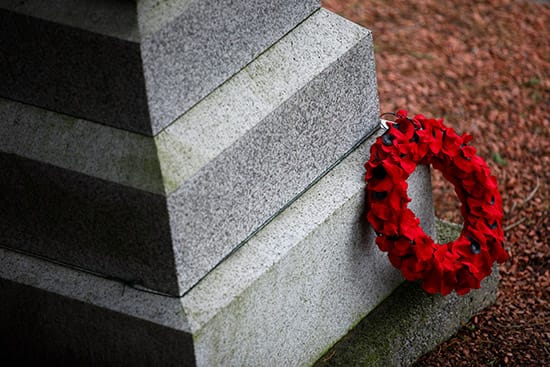Planning and Performing a Funeral
Throughout history, humans of all cultures have performed ceremonies to honor loved ones who have died. Funerals give us the chance to gather as a community, grieve over the loss of the deceased, and celebrate their life. As a minister, you have the important responsibility of presiding over this service, guiding the proceedings and respectfully honoring the deceased in the traditions of their faith while giving family members and friends a chance to express their feelings. You might be asked to plan the funeral service, or perform funeral readings or funeral sermons, but beyond the service itself, you also might find yourself tasked with providing emotional support to loved ones and be a resource for all those who need one.
Through our online ordainment program, the Universal Life Church allows individuals who feel a calling to this work become ordained ministers and preside over funerals. In this guide, we'll go over the funeral planning process and explain what you'll need to know in order to perform a ceremony.
Planning a Funeral Program
If you've been asked to perform a memorial service program, it's important to plan ahead. As a first step, you'll want to get clarification about the specific type of burial service the family envisions. As the minister, you're responsible for honoring the family's wishes and creating a ceremony that aligns with their beliefs. This will likely mean meeting in advance of the funeral to discuss different options and settle on a plan. Some important details you'll need to nail down:

- Whether the ceremony will be religious
- What rites should be included as part of these religious beliefs
- Specific traditions that should be included
- Whether they would like you to perform the eulogy, or if a loved one will do so
- The time frame of the ceremony, including the memorial service and burial (if applicable)
Start with our downloadable funeral planning checklist to guide the conversation, which should give you and the family a head start on memorial ideas. You should also visit the ceremony location in advance to familiarize yourself with the space. Introduce yourself to the funeral director as a professional courtesy and to make sure you're aware of any logistical quirks. This removes the burden on the family of performing this responsibility at this difficult time. Finally, if you need assistance crafting the ceremony itself, check out our funeral ceremony script generator to develop a customized script for the proceedings including poignant funeral readings and funeral prayers.
Religious Funeral Service Programs
If the deceased individual was religious, the family will likely prefer a ceremony that holds true to these beliefs. Find out whether specific prayers or pieces of scripture should be included, and identify these in advance. For families who prefer a non-religious service, a humanistic ceremony may be appropriate. This type of service can include readings from literature, musical excerpts, or any other forms of expression chosen in memory of the individual. Many examples of humanistic eulogies, ceremonies and readings are available online.
Writing and Solemnizing a Funeral Service
Note that the family may request that you deliver the eulogy. If that's the case, plan to spend some time writing and practicing this important task. Remember: the little things are important. Even if you knew the deceased personally, it's crucial to get the details about their life straight. When talking to the family, take careful notes so that you can add a personal touch to the service with a eulogy that accurately reflects who the deceased was in life. You may want to gather details about:
- Where he or she was born and early family life
- Educational and professional history
- Awards and Accomplishments
- Hobbies and pastimes
- Personality traits
- Favorite memories and cherished traditions

Avoid including sensitive or possibly upsetting information in the speech. Make notes about where to include personal anecdotes and remembrances and plan how to best incorporate any other specific elements. Before the event, read your draft aloud so that you can gauge the pacing, tone and length. Practicing will help you sound comfortable and relaxed when you speak in front of the audience.
Officiating a Memorial Service Program
When it comes time for the event, you should be well rehearsed and prepared. Even if you've never participated in a funeral before, careful planning will help boost your confidence while serving as a minister in this important capacity. Establishing a relationship with the family and familiarizing yourself with the deceased's life will allow you to convey a personal message of tribute within your funeral sermon that can be cherished by friends and loved ones alike.
Officiating a funeral is no easy task, but it can be quite a meaningful experience – and your work will be greatly appreciated by everyone involved. With the above knowledge in hand, you'll be well equipped for success as a funeral officiant. Best of luck!
